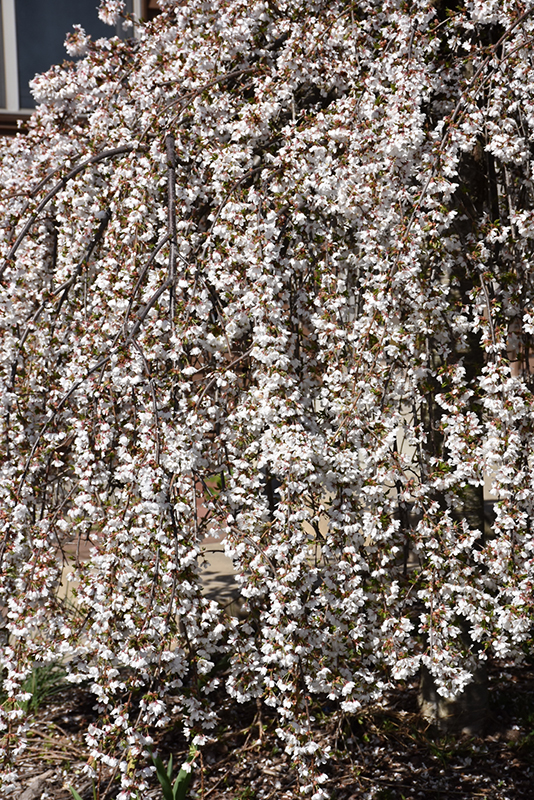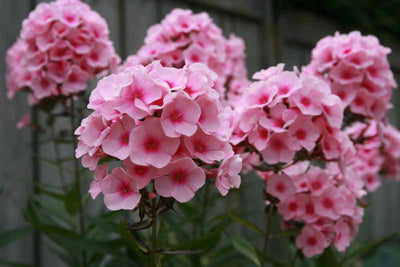Plant Library
Snow Showers Weeping Cherry
Prunus 'Snow Showers'
Height: 20 feet
Spread: 15 feet
Sunlight:
![]()
Hardiness Zone: 3a
Other Names: syn. Hilling's Weeping Cherry
Description:
A visually stunning, weeping variety that is blanketed in pure white flowers in early spring before the leaves; lovely yellow, orange, and red fall color; full sun and well-drained soil; vigorous, hardy, with good disease resistance
Ornamental Features
Snow Showers Weeping Cherry is covered in stunning clusters of fragrant white flowers along the branches in early spring before the leaves. It has dark green deciduous foliage which emerges coppery-bronze in spring. The pointy leaves turn outstanding shades of yellow, orange and red in the fall. The smooth dark red bark adds an interesting dimension to the landscape.
Landscape Attributes
Snow Showers Weeping Cherry is a deciduous tree with a rounded form and gracefully weeping branches. Its average texture blends into the landscape, but can be balanced by one or two finer or coarser trees or shrubs for an effective composition.
This tree will require occasional maintenance and upkeep, and is best pruned in late winter once the threat of extreme cold has passed. Gardeners should be aware of the following characteristic(s) that may warrant special consideration;
- Disease
Snow Showers Weeping Cherry is recommended for the following landscape applications;
- Accent
- Shade
Planting & Growing
Snow Showers Weeping Cherry will grow to be about 20 feet tall at maturity, with a spread of 15 feet. It has a low canopy with a typical clearance of 2 feet from the ground, and is suitable for planting under power lines. It grows at a medium rate, and under ideal conditions can be expected to live for 50 years or more.
This tree should only be grown in full sunlight. It does best in average to evenly moist conditions, but will not tolerate standing water. This plant will benefit from an application of bonemeal and/or mycorrhizal fertilizer at the time of planting. It is not particular as to soil pH, but grows best in rich soils. It is highly tolerant of urban pollution and will even thrive in inner city environments, and will benefit from being planted in a relatively sheltered location. This particular variety is an interspecific hybrid.





